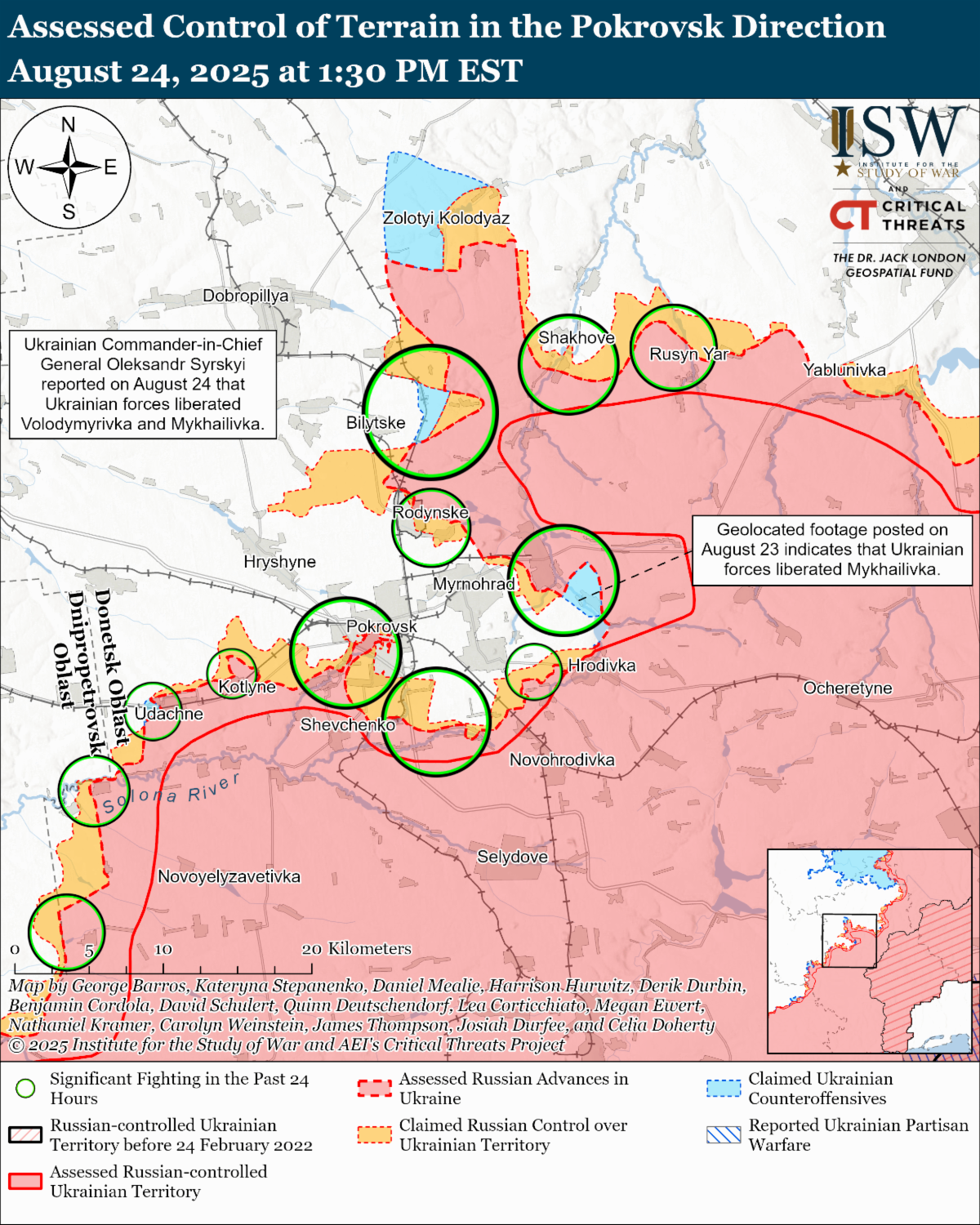Russian Foreign Minister Sergei Lavrov used an English-language interview with a US outlet to reiterate the Kremlin's explicit rejection of US-proposed initiatives for peace in Ukraine. Lavrov stated in an interview with NBC that Russian officials have explained Russia's war goals during meetings with Trump and other US officials and have also explained them publicly, signaling that public Russian statements about the war convey the same points that Russian officials aim to convey in private meetings. Lavrov reiterated that Russia views NATO expansion and the alleged "violation of Russian security interests" as one of the "root causes" of the war. Lavrov claimed that Russia will achieve its war aims, which he listed as the removal of security threats to Russia "coming from the Ukrainian territory," the protection of the rights of the "ethnic Russian and Russian-speaking people who believe they belong to the Russian culture and Russian history," and Ukrainian neutrality. Lavrov claimed that Ukraine has the right to exist but only as long as it "lets go" of ethnic Russians and Russian speakers who "decided that they belong to Russian culture." Lavrov claimed that Russia has a "duty" to support and protect those who share the values of the Russian language and the "Russian World" ("Russkiy Mir"). Lavrov's statements in the NBC interview reiterate consistent Kremlin claims that the alleged "root causes" of the war are NATO's eastward expansion and Ukraine's discrimination against Russian speakers. The Kremlin's "root causes" notably extend beyond Ukraine, and agreeing to Russia's demand that any future peace settlement "eliminate" the root causes would require substantial negotiations with NATO as well. Lavrov is also promoting the narrative that Ukraine is part of the Kremlin's "Russkiy Mir" idea - an amorphous ideological and geographic conception that Russia claims includes all of the former territories of Kyivan Rus, the Kingdom of Muscovy, the Russian Empire, the Soviet Union, and the contemporary Russian Federation. Lavrov's continued insistence that any end to the war must address Russia's "root causes," including multiple times following the August 15 Alaska summit, continues to indicate that Russia's war aims have not changed.
Lavrov continued efforts to mischaracterize Ukrainian President Volodymyr Zelensky as the impediment to an enduring peace in Ukraine, in order to distract from the Kremlin's own unwillingness to compromise or engage in negotiations on US President Donald Trump's proposed timeline. Lavrov claimed that Zelensky "will not resolve the [Kremlin's] issue[s]" with Ukraine and accused Zelensky of publicly stating that "he is not going to discuss any territories," deliberately mischaracterizing Zelensky's recent public statements to the opposite. Zelensky has repeatedly indicated in recent days that he is willing to discuss territorial issues in a bilateral meeting with Putin. Lavrov claimed that Zelensky is going against Trump's wishes regarding NATO membership and is refusing to repeal laws relating to Russia's defined "root causes" of the war. Lavrov asked why Zelensky is "ready to meet" and implied that any Zelensky-Putin meeting would be useless, suggesting that Putin is unwilling to meet with Zelensky unless Ukraine concedes to Russia's original war demands, which amount to Ukraine's military, political, and cultural capitulation.
Lavrov denied that Russia violated past international treaties prohibiting Russia from invading Ukraine and rejected Western-backed security guarantees for Ukraine in the future. Lavrov claimed that the 1994 Budapest Memorandum guaranteed Ukraine's security just "as any other non-nuclear state" and that the legal obligation of nuclear states that give guarantees to non-nuclear states is to not use nuclear weapons against non-nuclear states. Lavrov claimed that Ukraine - not Russia - violated the 1994 agreement by not respecting human rights after 2014. The Budapest Memorandum does state that Russia, the UK, and the United States are committed to not use nuclear weapons against non-nuclear states party to the Nuclear Non-Proliferation Treaty, such as Ukraine. Lavrov's claims ignore, however, that the memorandum also states that Russia, the UK, and United States are committed to "respect the independence and sovereignty and the existing borders of Ukraine."
| 




 [국방부] '장병 체감형 원스톱 서비스 플랫폼' 이름을 지어 주세요
[국방부] '장병 체감형 원스톱 서비스 플랫폼' 이름을 지어 주세요
 [ISW] 러시아 공세 캠페인 평가, 2025년 8월 23일
[ISW] 러시아 공세 캠페인 평가, 2025년 8월 23일